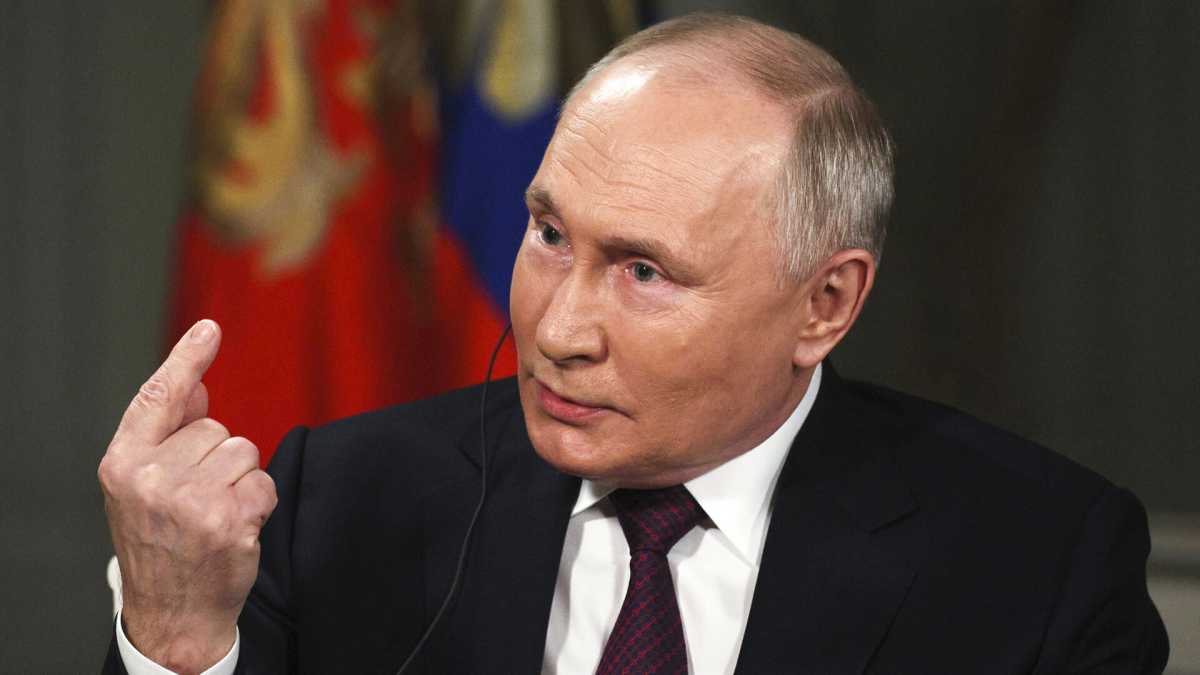Education
Russian Schools Incorporate Putin’s Interview with Tucker Carlson in History Quizzes, Prompting Concerns of Propaganda Influence on Students

Pupils in Russia have recently participated in a unique history quiz that involved viewing segments of a two-hour interview between President Vladimir Putin and American commentator Tucker Carlson. The quiz, organized by schools across the country, showcased Putin’s detailed historical narrative starting from the year 862, including contentious claims about Ukraine’s statehood, which were refuted by Kyiv as false and self-serving.
Described on social media as an ‘intellectual game,’ the quiz aimed to offer children insights into ‘the stages of development of the Russian state,’ blending entertainment with education. Schools, such as one in Rostov and the Domodedovskaya grammar school, reported that students ranging from classes one through 11 participated in watching excerpts of the interview and then answering age-appropriate questions.
The event was highlighted by Ne Norma, an association that monitors the dissemination of Putin’s Ukraine invasion narrative among Russian youth. Dmitry Tsibiryov, a spokesperson for the project, noted that the quiz’s incorporation of the Carlson interview was unsurprising given the extensive propaganda attention it had received in state media.
While the specific clips used in the quiz were not disclosed, the multiple-choice quiz questions were designed to reinforce Putin’s key points from the interview. For example, students were quizzed on historical references such as the interpretation of the term ‘Ukrainian’ in the 13th century, aiming to align with Putin’s assertions about Ukrainian identity.
This educational initiative aligns with broader curriculum changes post-Russia’s invasion of Ukraine, including the introduction of ‘Important Conversations’ lessons focusing on patriotic themes. Moreover, Putin-endorsed history textbooks and school visits by soldiers and veterans further reflect the educational system’s role in reinforcing nationalistic sentiments among students.
Concerns have been raised regarding the potential indoctrination effects of such educational activities, with critics warning against the propagation of false patriotism and the recruitment of youth for wartime agendas. The use of schools as tools for propaganda dissemination has sparked debates on the long-term impact on students’ beliefs and values.












